What's it really like to record an album at Abbey Road? We spent a day in the studio with The Clockworks and Bernard Butler to find out
RECORDING WEEK 2023: We’ve all dreamt of making a masterpiece at Abbey Road. For this Galway four-piece, the iconic studio became the real-life HQ for the recording of their debut, produced by Bernard Butler
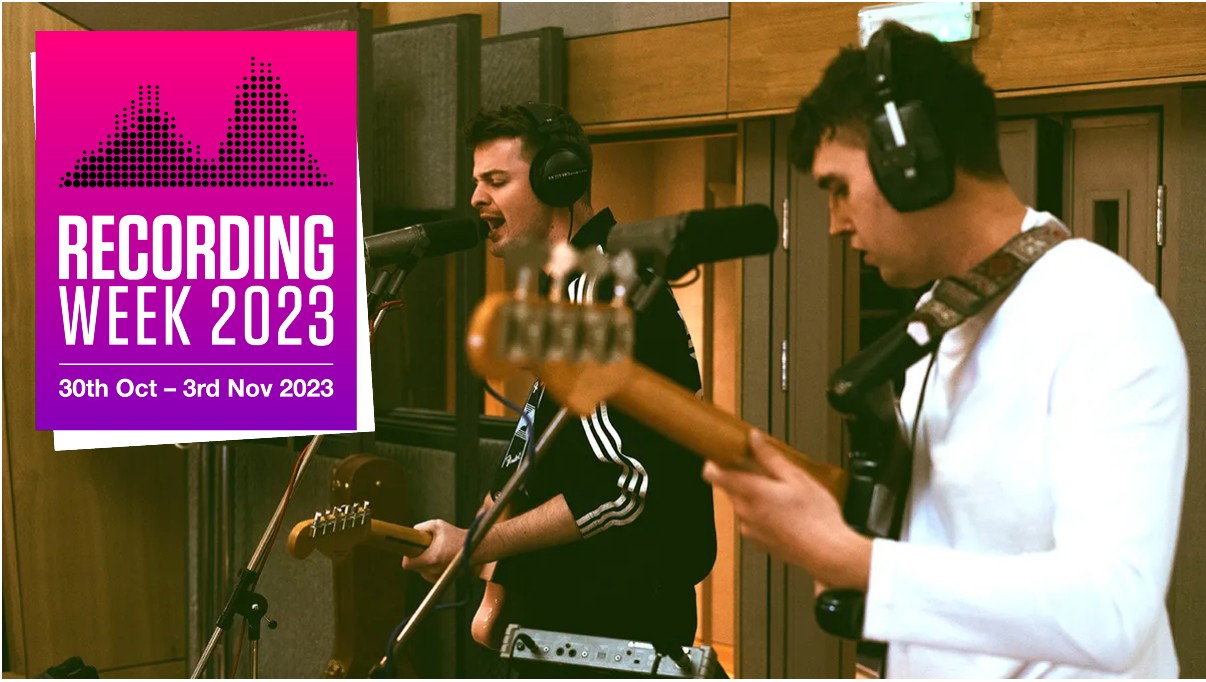
RECORDING WEEK 2023: Wandering the quiet corridors of Abbey Road Studios is a strangely tranquil experience. Garrisons of Studer J37 Tape Machines solemnly stand guard, while famed artefacts, such as antique REDD recording consoles sit in wait, indifferent to the decades of technological advancement that followed their capturing of popular music’s most foundational moments.
You might be forgiven for thinking you were passing through a museum of a studio whose best days lay in prior decades, but behind the nondescript pine door of Studio Three, the intense business of record production continues in full swing.
The man in charge of producing said record needs little introduction, former guitar hero and seasoned producer Bernard Butler hasn’t much time for nostalgia, “It can defeat the purpose of why you’re here. If you’re just stuck in the 'what was' you don’t ever think about what could be. What really happened here is that people were creative. It’s still the case now. People go into a room and, when they’re feeling inspired, they make something great.”
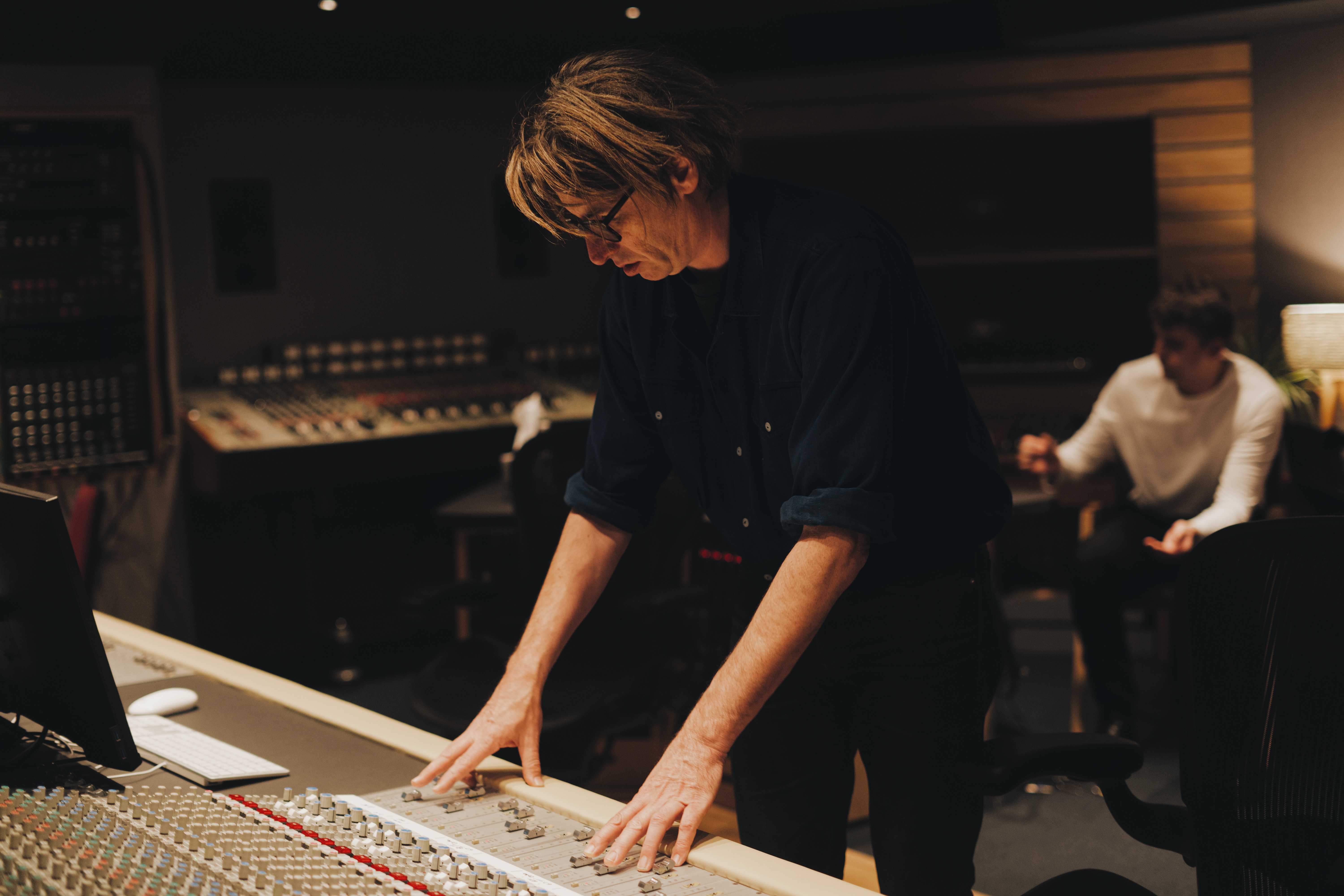
Today marks the final recording day for Butler’s latest project; producing the debut album of Galway four-piece The Clockworks. The now London-based indie rock troupe have been making waves with an explosive salvo of singles on Alan McGee’s It’s Creation Baby label, including the caustic Bills and Pills, the exuberant Enough is Never Enough and the euphoric Feels So Real.
Centred around lead vocalist James McGregor’s socially conscious lyrics, in tandem with the driving melodicism of guitarist Sean Connelly, the band’s debut album Exit Strategy has been something the four young men have been planning for nearly a decade. But how does it feel to be cutting many of its tracks at Abbey Road?
We’ve always known that Bernard is a legitimate creative genius so getting that mind into our music has been great
“It’s nice, it’s romantic. We initially did a Lock-In session with Abbey Road last year. That went really great.” Explains Sean, “It’s strange to say that Abbey Road has ended up feeling like home for us but it is actually true. Every time we come back we know more people. You can’t really get that in other places, Abbey Road is such an institution. There’s so many people to meet and be inspired by.”
Today, the four are tracking the album’s finale – the poignant Westway. We were fortunate enough to be able to sit-in as the band workshopped the song with Bernard before the recording proper. Butler semi-conducted the band through a few passes, teasing out greater emotion from the song’s shifting chord sequence.
Want all the hottest music and gear news, reviews, deals, features and more, direct to your inbox? Sign up here.
While some artists might be protective of their cherished songs, The Clockworks have no qualms about letting Bernard into their world. “We’ve always known that he’s a legitimate creative genius so getting that mind into our music has been great,” Sean tells us. Drummer Damian Greaney explains that the song-workshopping process makes him assess the song’s strengths in a different way.
“Sometimes those conversations about song changes make you realise what you care about. If you let stuff go easily then you know it wasn’t that important, but if you fight for it then it’s obviously an important part of the song for you.”
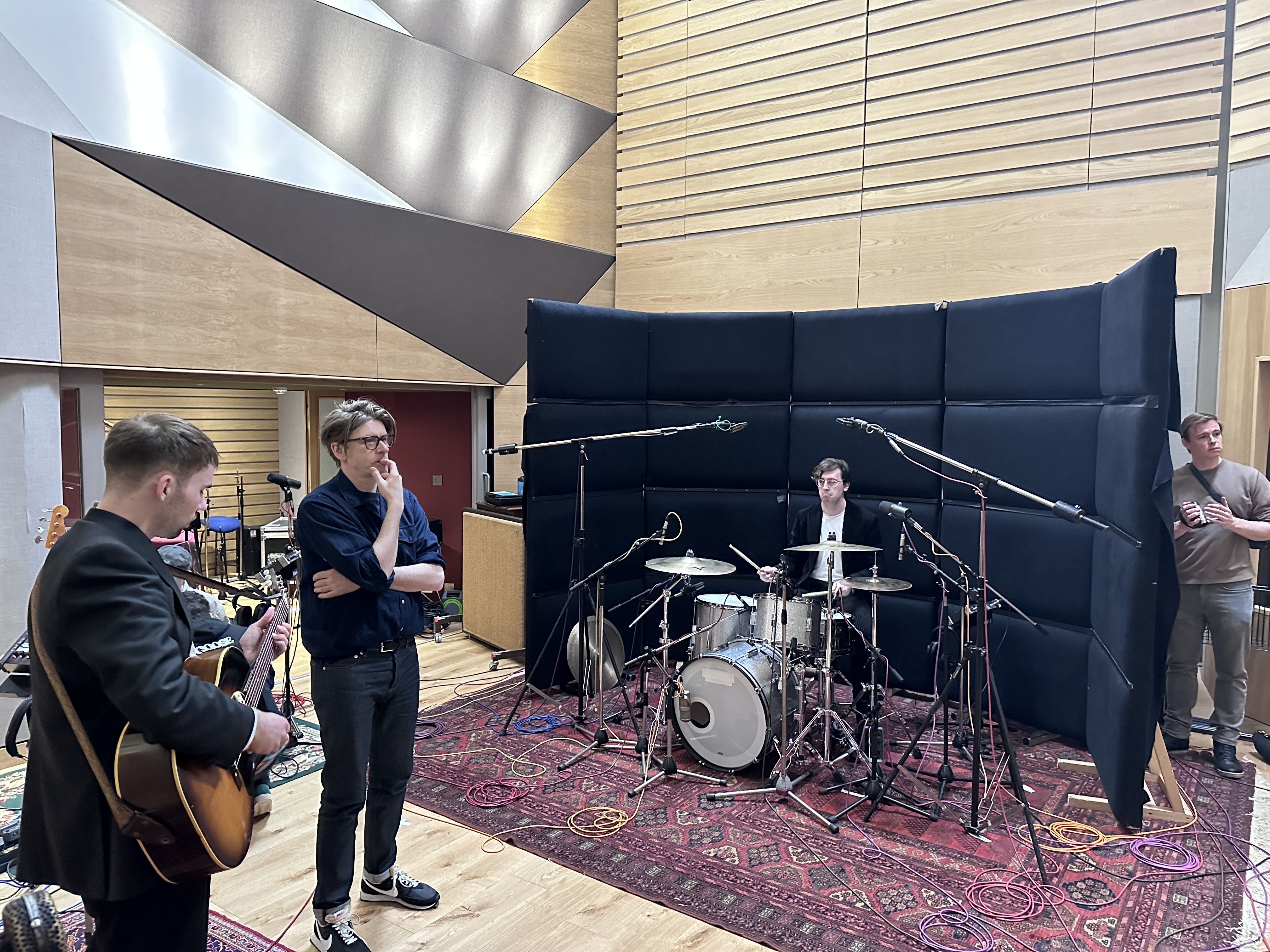
Ground control
The control room of the freshly redesigned Studio Three is defined by the enormous SSL-G Plus mixing console, over which Bernard now presides. Speaking to the band in the adjacent live room via the talkback mic, Butler recognises that Sean’s plaintive lead guitar solo requires slight, but important re-arrangement, and instructs bass player Tom Freeman and James to cease strumming. A couple of takes later the band nail the change, and the section is (quite markedly) enhanced.
All the while, Butler adjusts amp sim tones via a Line 6 HX Stomp, into which runs Sean’s signal. “I love things that make life easier. I recently got one [for touring] and discovered that the band by chance were using a Line 6 HX as well so I just said we should put them in the control room and run some lines in. I’m controlling them and finding the right tone. They sound great. Although we said we’d record it on real amps later, it actually sounds good as is.”
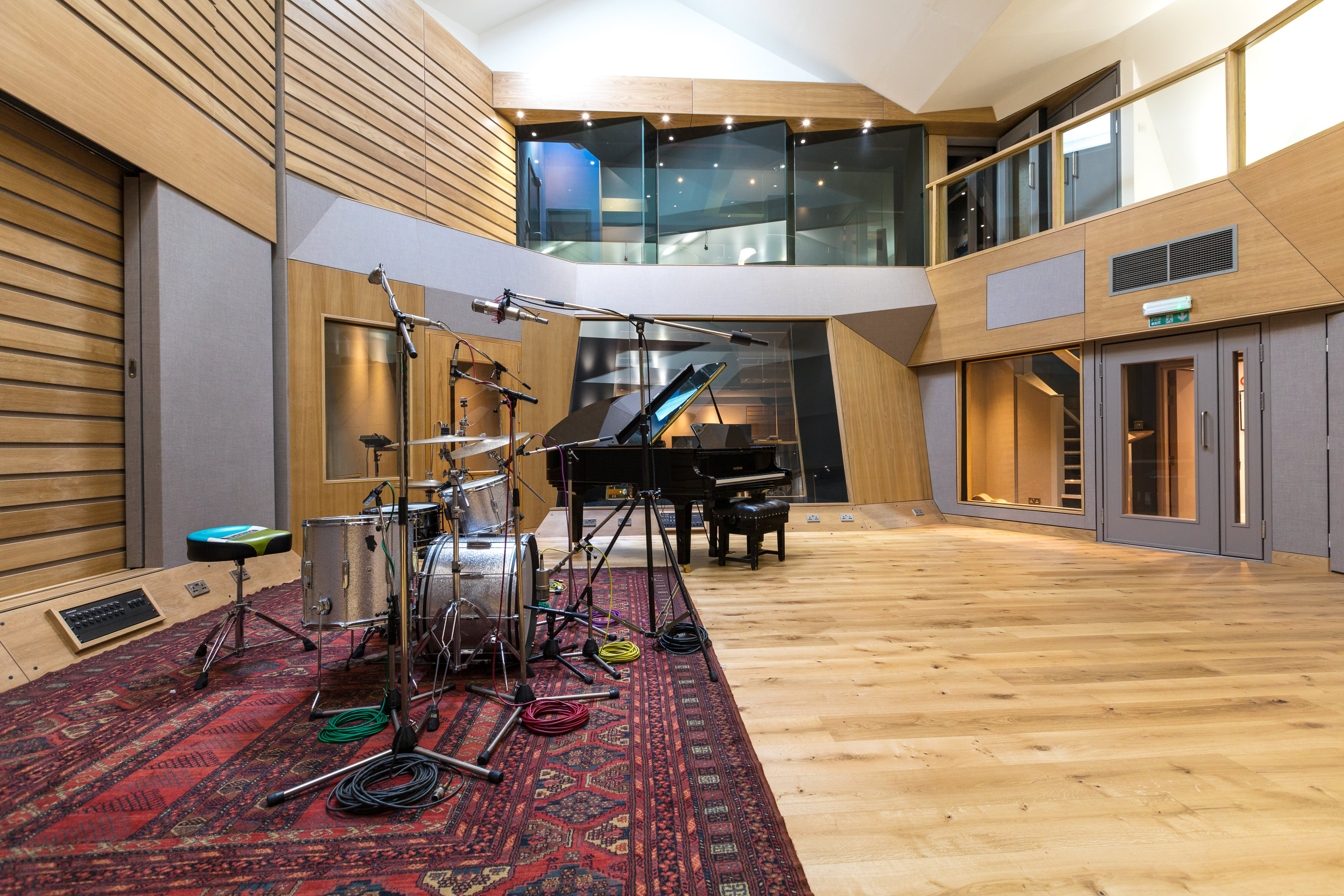
Later, Butler delves deeper into his surgical approach to song-tightening. “I always like that feeling of adventure. What can happen with people you don’t know, you don’t know the song and what can you do. I liked the thrill of those things. When I first met the band I described what I was going to do. I didn’t talk about gear or plugins or anything like that – it was about songs.”
When I first met the band I described what I was going to do. I didn’t talk about gear or plugins or anything like that – it was about songs
Butler opts to approach the songs on an instinctual level, rather than front-loading with background research into the artists he works with, “I don’t like to talk about references or any other music, or try to aim to sound like another artist. I say we’re going to talk about what we’re going to do with the song. What we can look at from a mechanical perspective – where it’s efficient or, where it’s boring and where it’s not. That’s what we did. In the first session for the song Mayday, we put everything down and played through with just one guitar and a voice and ripped the song up. We wrote down a different arrangement, worked through the lyrics and then recorded it.”
“[The Clockworks] have been brilliant.” Bernard enthuses, “They’re so open to new ideas and are really good fun. They’re a proper band, and very tight. I’m always really grateful that I can stick my nose in this way and they don’t punch me. I’ll see where the line is, and I’ll go as far as the line is to push them. The principle wasn’t just to make a record, but to show the band what you can do with songs.”
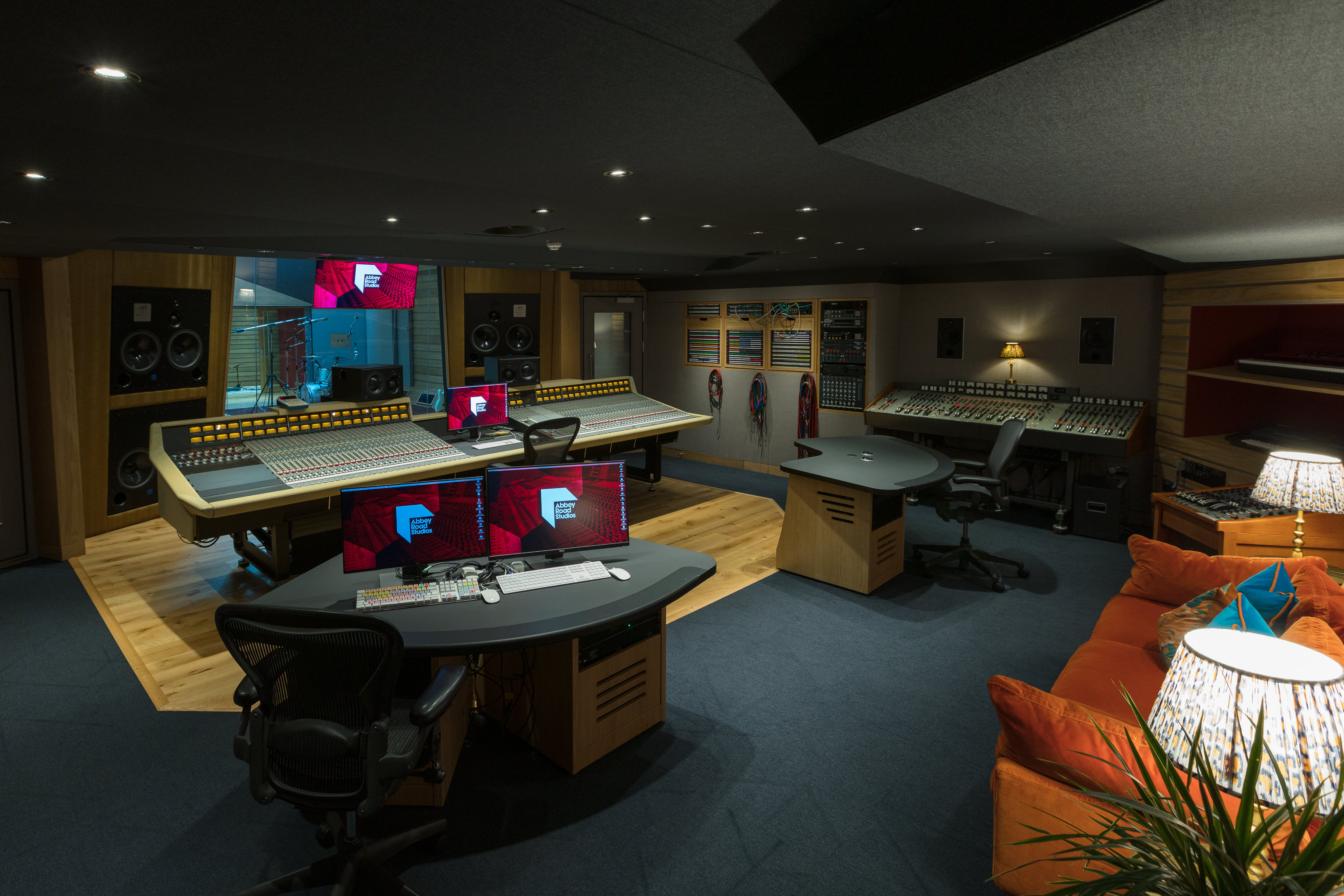
Stop the clocks
For The Clockworks, Exit Strategy is more than just a compendium of songs, but a carefully considered opening statement. “There is a narrative to the album that we have been definite on since the first song was written” James tells us, “So we have been chasing that narrative a little bit. We almost see it as a kind of film. There is a very definite narrative there and very definite characters with names. That’s there if you want it, but there’s great music too.”
Damian emphasises that the record has lived with the band for a long time, “That’s what I think is so special about this, some of these songs we’ve had in our back-pocket for years. There’s some songs we only finished last month. It’s great to see all those come together and fit so well together.”
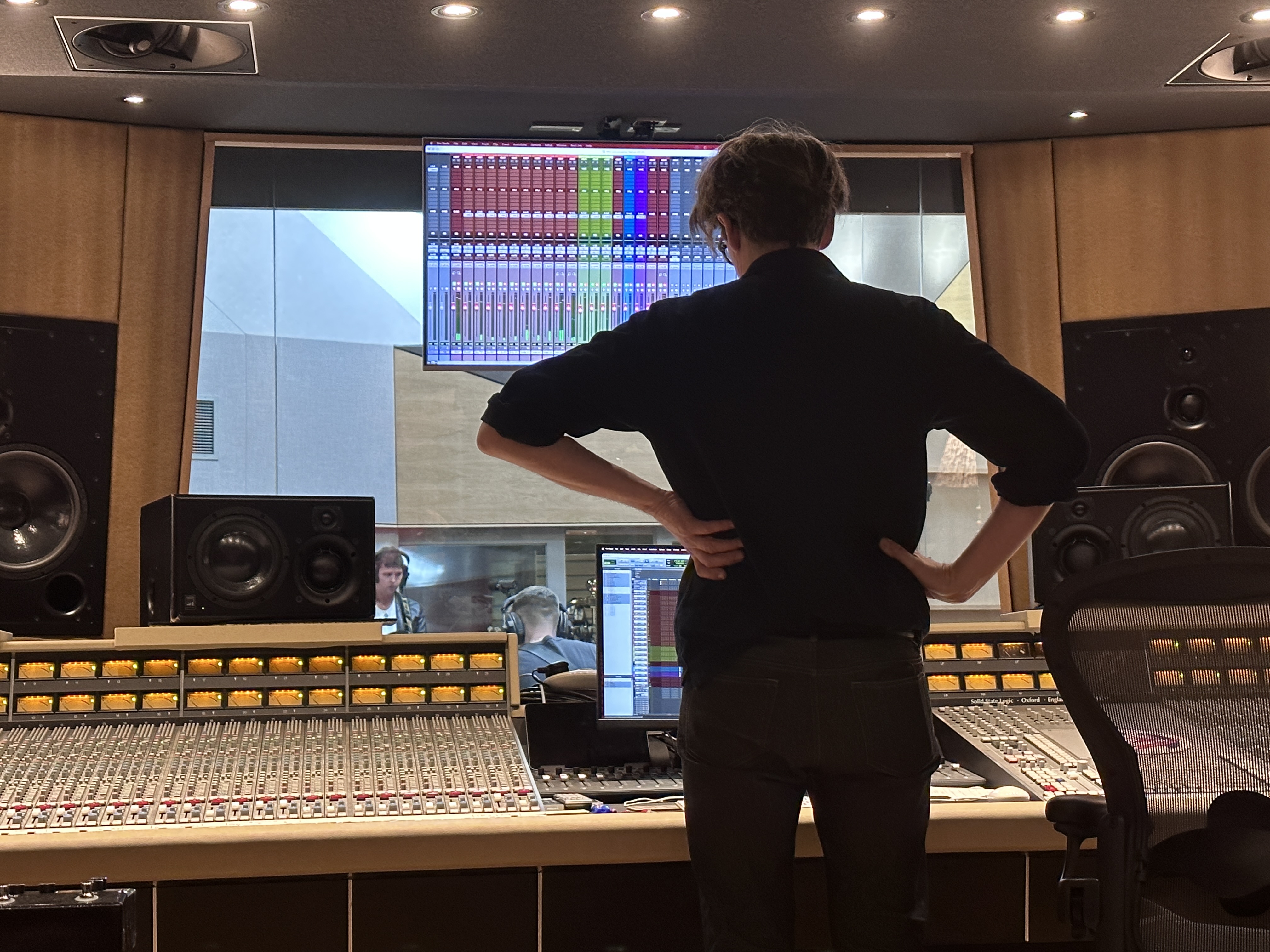
With the final song tracked, the next stage is to record vocals and overdubs at Abbey Road’s Gatehouse tracking studio later that week. Bernard will then take the remaining tracks to his home studio – Studio 355.
“I’ll spend two weeks at home just mixing it properly. That process is that I work on two or three songs at a time and I’ll be listening over and over, I’ll be listening on my studio speakers (a pair of Bowers and Wilkins 805s), then my living room speakers, then I’ll go for a drive and listen to hear the mix in different contexts. Within that time frame, the band will be listening to it and approving or not.”
As our time within the hallowed walls of Abbey Road nears its end, Bernard reiterates that for him, Abbey Road remains an environment synonymous with creative people and a huge array of options,“The rooms are amazing and the rooms sound amazing. All the people are so well-skilled and trained, and then you have the kit which is anything you want.” Bernard explains, “The most important thing you need is a space and an environment. Abbey Road is that, and the people are second to none.”



I'm Andy, the Music-Making Ed here at MusicRadar. My work explores both the inner-workings of how music is made, and frequently digs into the history and development of popular music.
Previously the editor of Computer Music, my career has included editing MusicTech magazine and website and writing about music-making and listening for titles such as NME, Classic Pop, Audio Media International, Guitar.com and Uncut.
When I'm not writing about music, I'm making it. I release tracks under the name ALP.